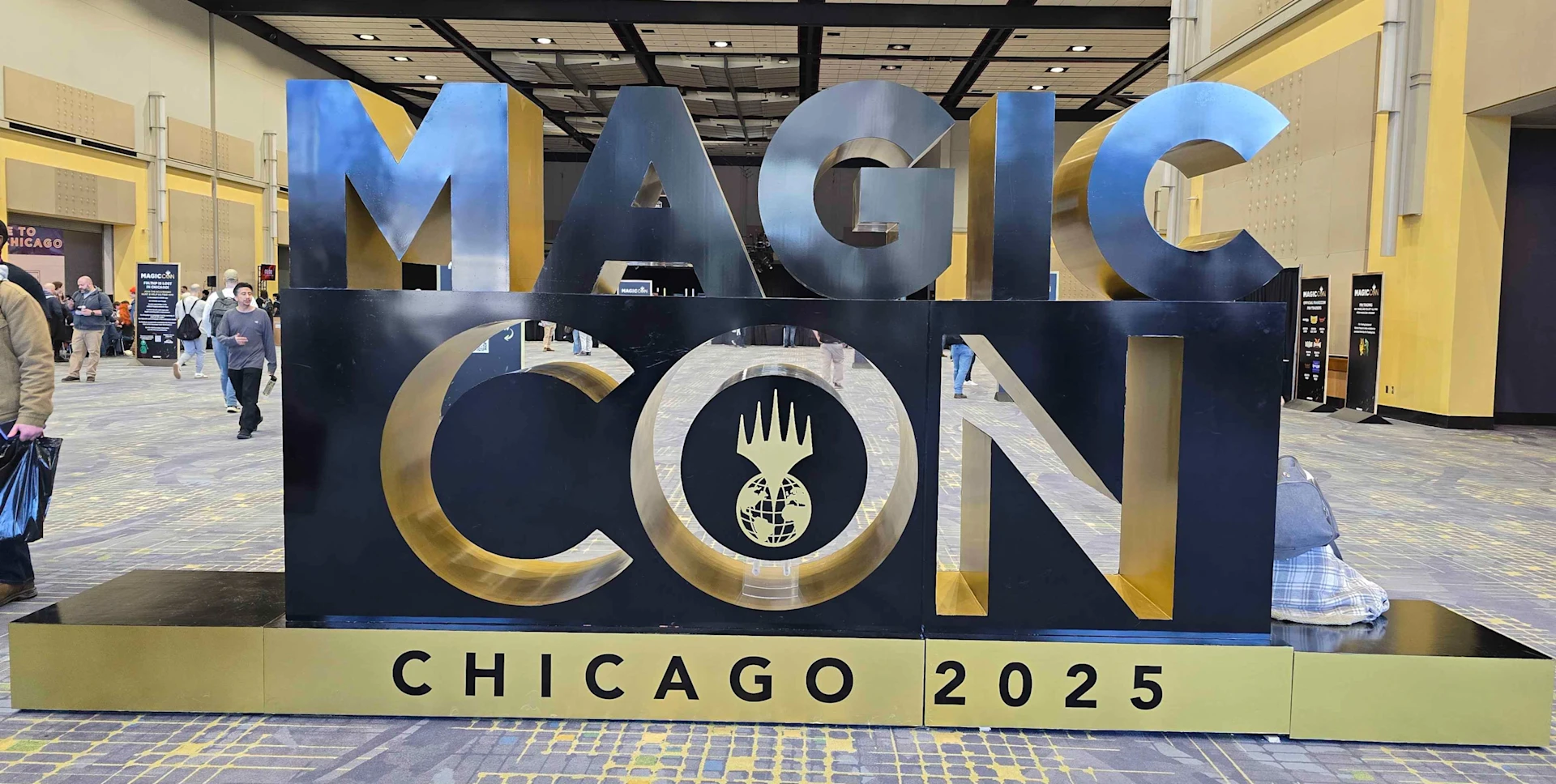
MagicCon 2025 Interview: Avatar the Last Airbender Magic Cards, Tarkir Dragonstorm, Design Talk, and More
Magic the Gathering: behind the scenes!
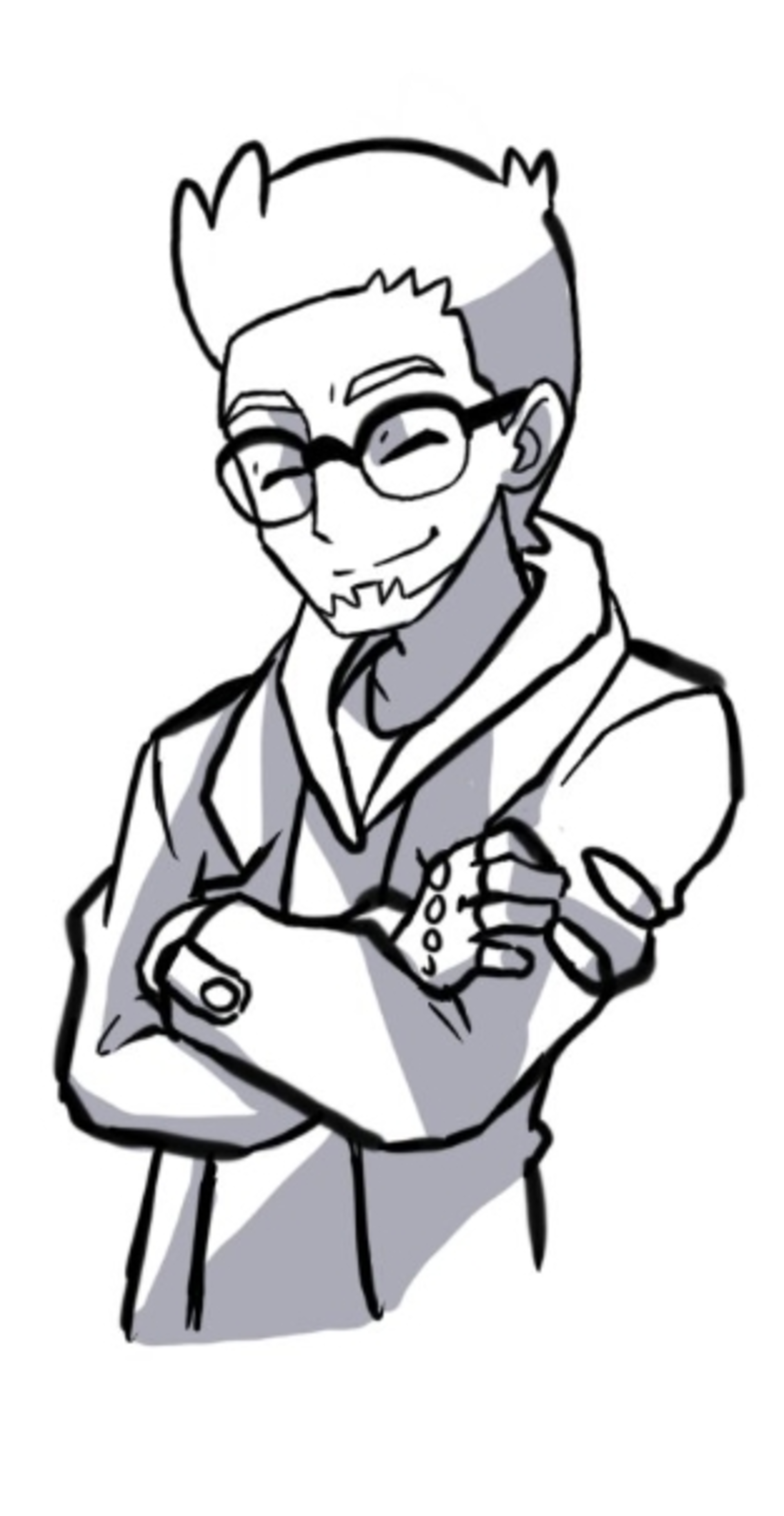
Designer Mark Rosewater, Director of Communications Blake Rasmussen, and Principal Product Architect Athena Froehlich discuss Universe Beyond Magic the Gathering cards, and how the game's past and future inform its current direction.
SteelSeries had the opportunity to attend MagicCon in Chicago once again! As many of us are card nerds as well, we couldn't pass up the chance to get in on some high-profile interviews.
In a group setting with other members of the press, we asked a few questions and interviewed three members of the Wizards of the Coast team.
We had to cut down the interview quite extensively unfortunately, due to its length, but we kept the best parts for you. Please enjoy the transcript below where we talk about Magic design, Avatar: The Last Airbender, Tarkir Dragonstorm, and more!
Interview with Mark Rosewater, Blake Rasmussen, Athena Froehlich
How important was it to ensure that Tarkir felt like the original clan?
Mark Rosewater: I was the lead for the original Tarkir ten years ago. It was really important. Like one of the things when we do a return, we understand that like people love returning to it as they loved the things the first time around and that people want to take that and mix it with the new things.
And so whenever we do any sort of faction and we did this with the clans as it's very important, like this is not just true of Tarkir. When we go back to Ravnica, anything that's a Faction based thing, we in fact think about, okay, what did you do before? What did it mean? And while we made new mechanics, we stuck very like Mardu is the fast, aggressive one.
We gave them new tools and toys. But it's very important that if you take the one from the current set and play them with the old, that they do blend together.
Athena Froehlich: I will say with any return to set, you're trying to strike that balance. They've come to love it. You really want to deliver on those expectations, especially nostalgic expectations which sometimes are hard to meet, while also keeping it really fresh and exciting and new.
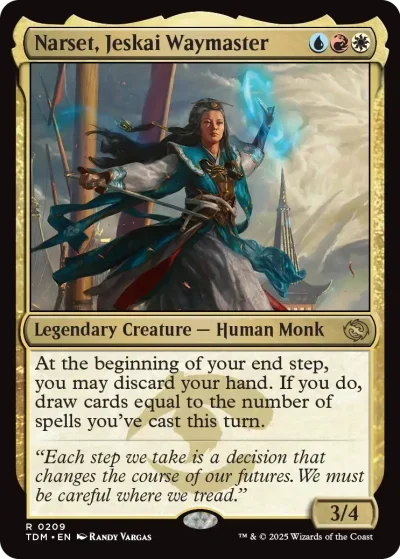
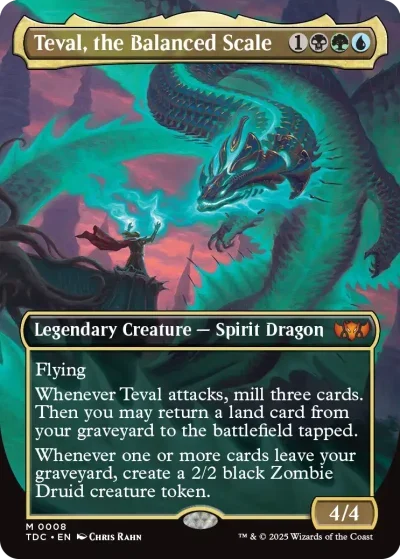
On the writing side, I am very curious about how do you come up with names for things?
Mark Rosewater: None of us up here did that, but I'm the one that has done this in the past. We have group called the Creative Team. So there's a team that does names and flavor text and art descriptions and does all sort of creative elements of the site.
Each clan has a real-world influence. Jeskai is based on Shaolin monks. So when you're trying to do names, you first and foremost say, okay, what's your inspiration? And so each of the clans comes from a very specific region.
And so we look at the language that we are influenced by. And we look for names that make sense that come out of that. And so all the names sort of match the cosmology of the region that we're influenced by.
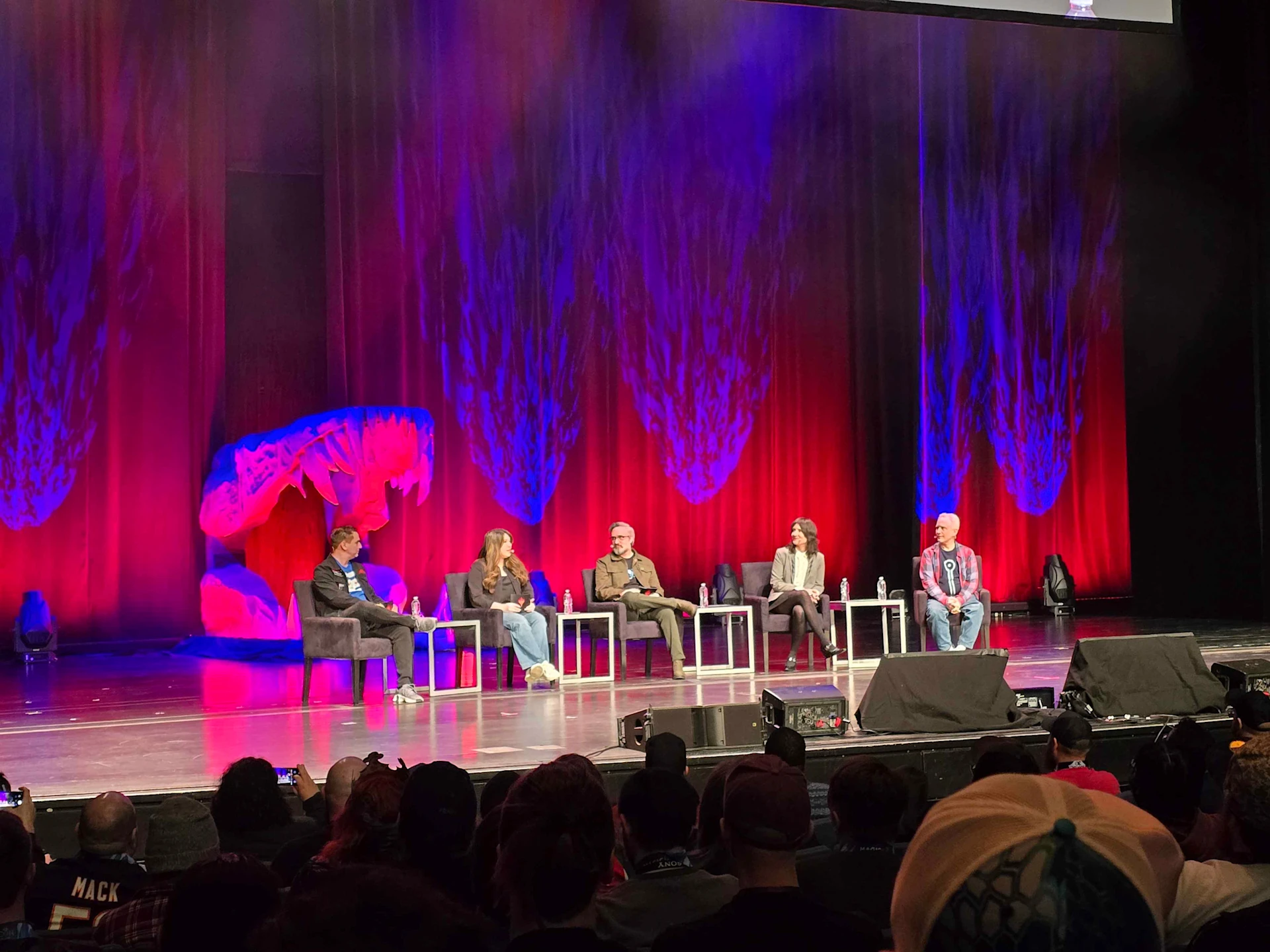
So you talk about wanting to do Magic in space for a long time. Was the crystallization of that idea now?
Mark Rosewater: The impetus of it, to be honest, was the success of Kamigawa Neon Dynasty. So one of the things magic is done from very you go back to Magic's roots, back to Alpha, whatever, we were very good at high fantasy. That's where we started. And one of the things we've learned over the years is where Magic kind of shines is, hey, we can keep reinventing ourselves.
We have, you know, we have a multiverse, we have all these different worlds, and they really start to push in. For example, when we went in Inistrad for the first time that people can mix fantasy with horror, that was quite controversial. I mean, it sounds silly now, but it was controversial at the time.
And so one of the things that we did with Kanagawa was we were experimenting a little bit and we pushed a little more on technology than we ever had. And that went over like gangbusters. People really loved it and it sort of said, you know what, let's just let's embrace, let's do a little bit more with sort of technology now, once again, it's Magic.
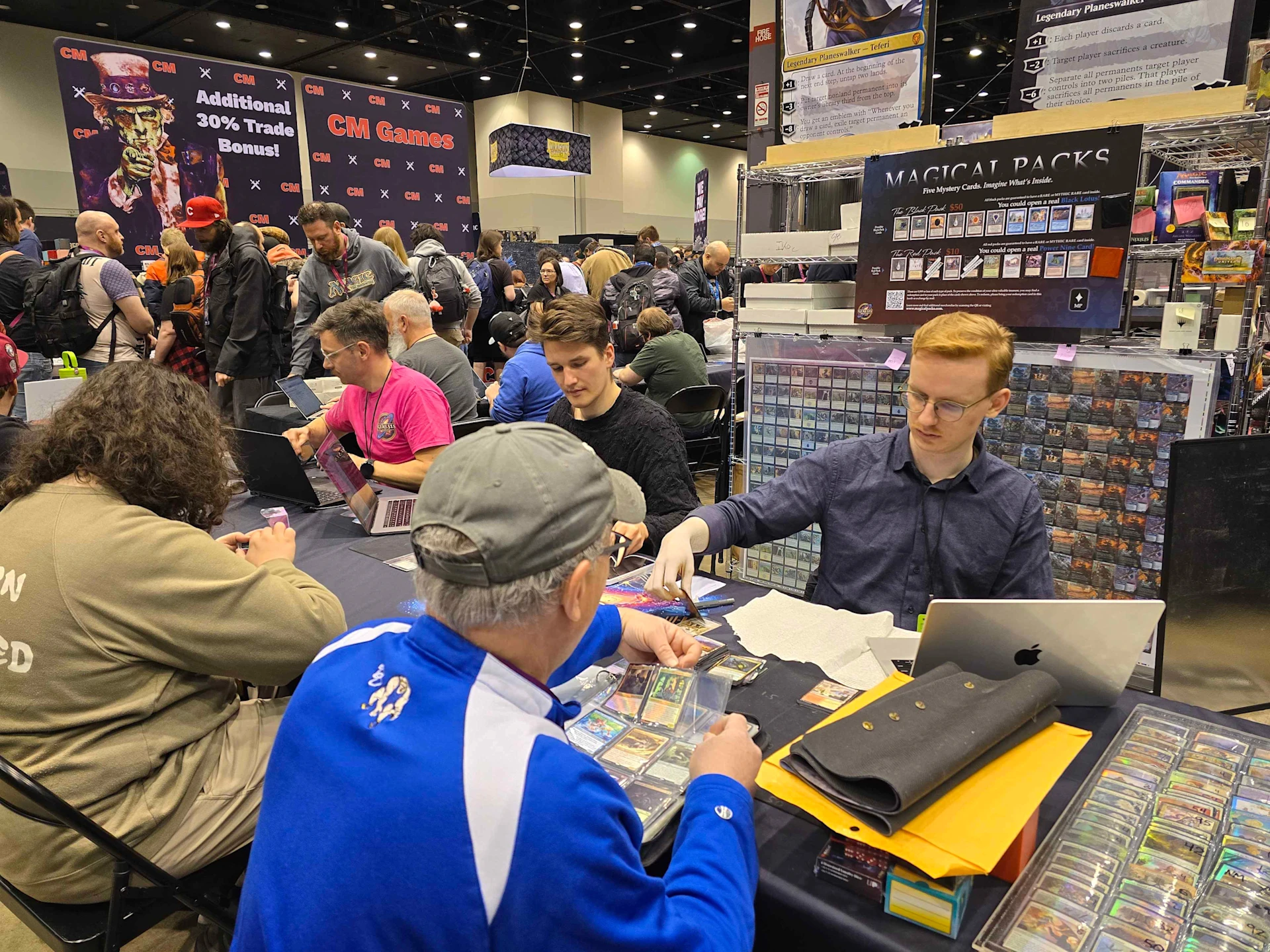
Was there something specific with Avatar that just told you we had to do Avatar?
Mark Rosewater: So the way it works is we have a team that investigates things, but there's a business team that investigates, and there's an R&D team. And the business team says, here are things we're looking at. The business team looks at what is the Magic audience?
We want to make a game that a) Magic players will want to play and b) potential Magic players want to play.
Then they come to R&D and what we do is ask, could we make a good <agic set? Not every world fits how Magic works because Magic gets a five colors and we have to have flying creatures, etc. So we sort of put it through the paces and then we go back to the business team and we say, basically, this is a great candidate. This is an okay candidate. It's not the best candidate.
Then they come to R&D and what we do is ask, could we make a good Magic set? Not every world fits how Magic works because Magic gets a five colors and we have to have flying creatures, etc. So we sort of put it through the paces and then we go back to the business team and we say, basically, this is a great candidate. This is an okay candidate. It's not the best candidate.
Athena Froehlich: So we'll say for Avatar in particular we were super excited because they're currently undergoing a renaissance of their own with their new movie and new show. And it was just this perfect opportunity for us to jump on board. And it's also they have a younger audience, and so that's really good for Magic. When we talk about acquisition and trying to get new people into the game of kind of looking at what the demographics are and making sure we are truly for everyone.
I'm piggy-backing off your Tumblr, recently where you were asked about why do we have diverse representation in Magic. So if you want to reiterate for us or if you want to expand on it, what why does it matter that Magic has been championing representation and diversity?
Mark Rosewater: I want as many people as possible to play Magic, and I think magic is very approachable from a game standpoint. But I want to make sure that everybody like one of the cool things about magic is that magic is what you want it to be like.
One of the most powerful things about Magic is that if I go play Monopoly, well, Monopoly's Monopoly or Scrabble is Scrabble, it's what it is. But Magic, like we have over 28,000 cards. You choose what your deck is, and your deck gets to be a reflection of you in a way that few other games really can match.
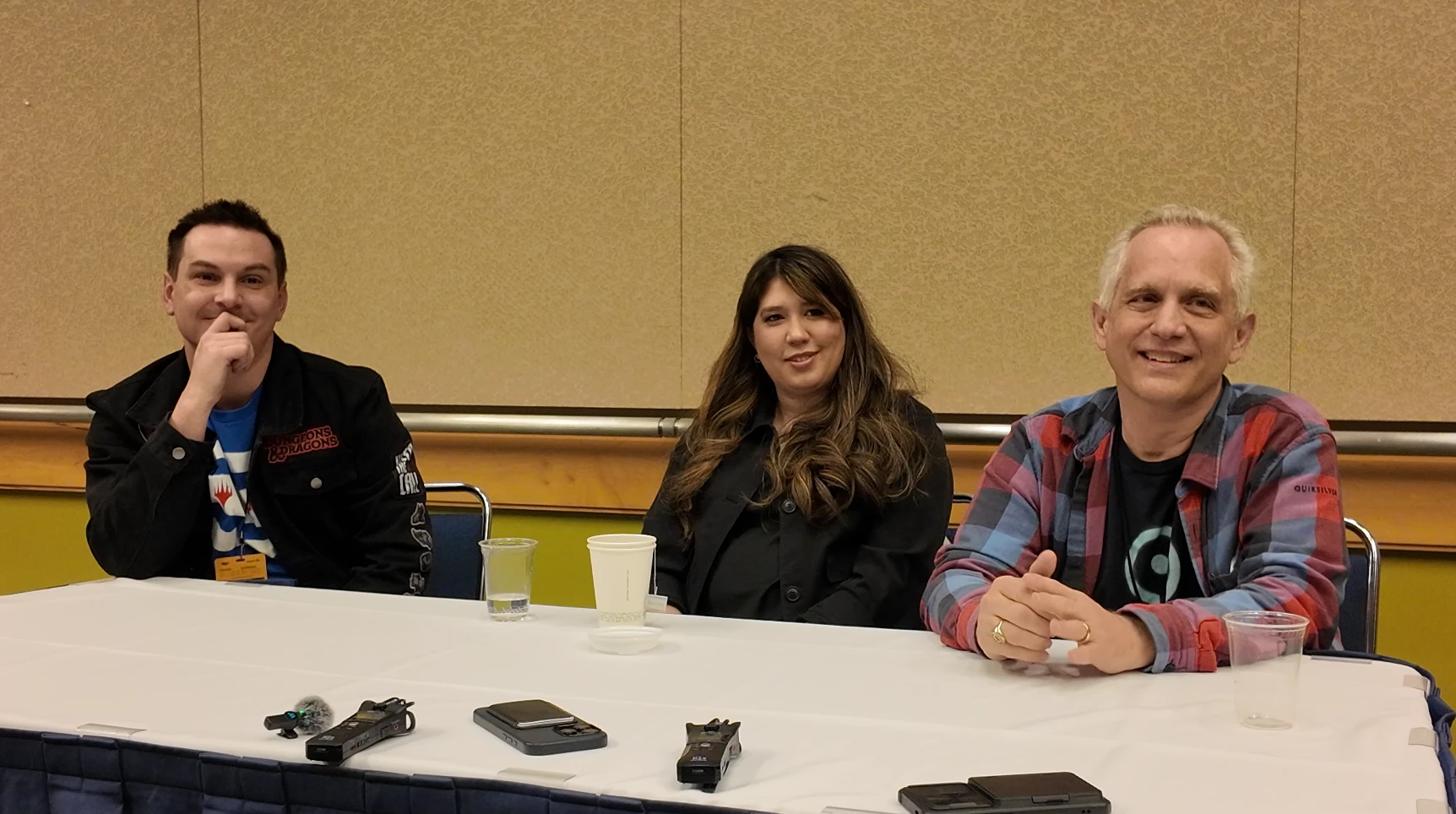
And one of the things that's so important is who you are as a person. The things you represent you want to see that today we put Alesha, but we made a reference to Alesha that was a really powerful character. It was really important. There are a lot of people that just don't see themselves represented in games and the amount of mail that I got about that.
I mean, it's also important to people that I, I talk to people constantly and it really, really means something to people. And the thing I was just trying to explain is, it's very easy when all your life you've seen yourself in everything you've ever done. Maybe you've don’t understand that's important because you've never not had it, you've never experienced not having it.
And so that has always been important to us. And even now, I mean, the reason I answered on the blog is I felt like if ever there was a time just to hear that again, now is the time that that it is. Sadly, the world is not as reflective of that as it should be and that we care about it.
And I wanted to make sure that that no matter what is happening, we still care about that.
Athena Froehlich: Yeah, definitely. I mean that for a personal anecdote, I was a Magic fan before I started working at the company, and I still remember when Kaya was debuted and the care and love that was put into that character, how meaningful it was for me personally, because she looks like people in my family, and that was a really exciting moment to see that reflected in a game that I had invested myself so much into.
Blake Rasmussen: Yeah, I mean, the only thing I'll add, the head of the Magic studio, he says this in almost every meeting: Magic is for everyone. And that's really the entire studio's mantra. And for it to be for everyone, it needs to be reflective of everyone. In our market research, we see that among the highest motivators for why people enjoy Magic is self-expression. And in order to express yourself, you have to see yourself in the game as well.
And so just practically speaking, that's one of the things people love about magic. In addition to being incredibly important, our studio is a pretty diverse group of people and are all really passionate.
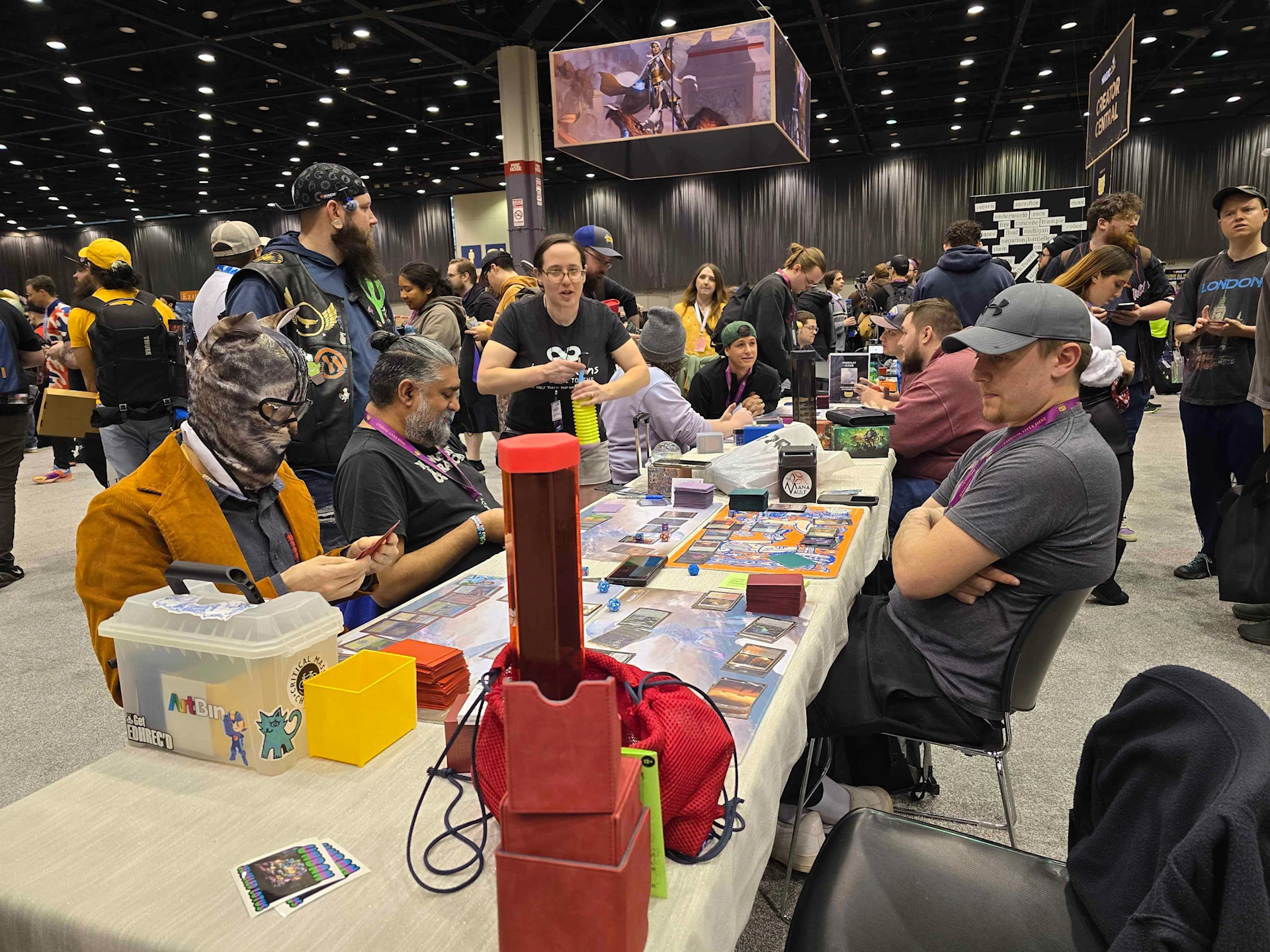
Seeing how there's so many IPs, obviously there's less product this year, but with a wider range of IPs. Is there a concern when it comes to off putting players in Standard not wanting to see Final Fantasy or Spider-Man?
Mark Rosewater: We did some polling. We have a whole marketing research team and basically said, okay, is it a problem for you? We asked and what we got back was most people didn't care. I mean, not enough care.
You know, Magic is about, okay, now it's horror, and now it little fuzzy animals and now, it's racing. Magic's strength is like the metaphor I use, is that we're a buffet and that we want to make this the best buffet ever. And what we've learned is, hey, the more food with, the more different kinds of food we have, the more people are happy.
People like the variety. And so we're trying something a little bit new. Yes. There's other IPs And how does it feel when I'm mixing them together on our preliminary that it says people are okay with it? Hey, when the rubber hits the road, we'll get more data when people actually are playing with it. And if we get like we always live and die by the feedback.
Commander was not a thing that existed the then Players made it. We dipped our total in it, Players really liked it. We kept doing more and this became a giant part of the game. So we are reactive to whatever the audience wants.
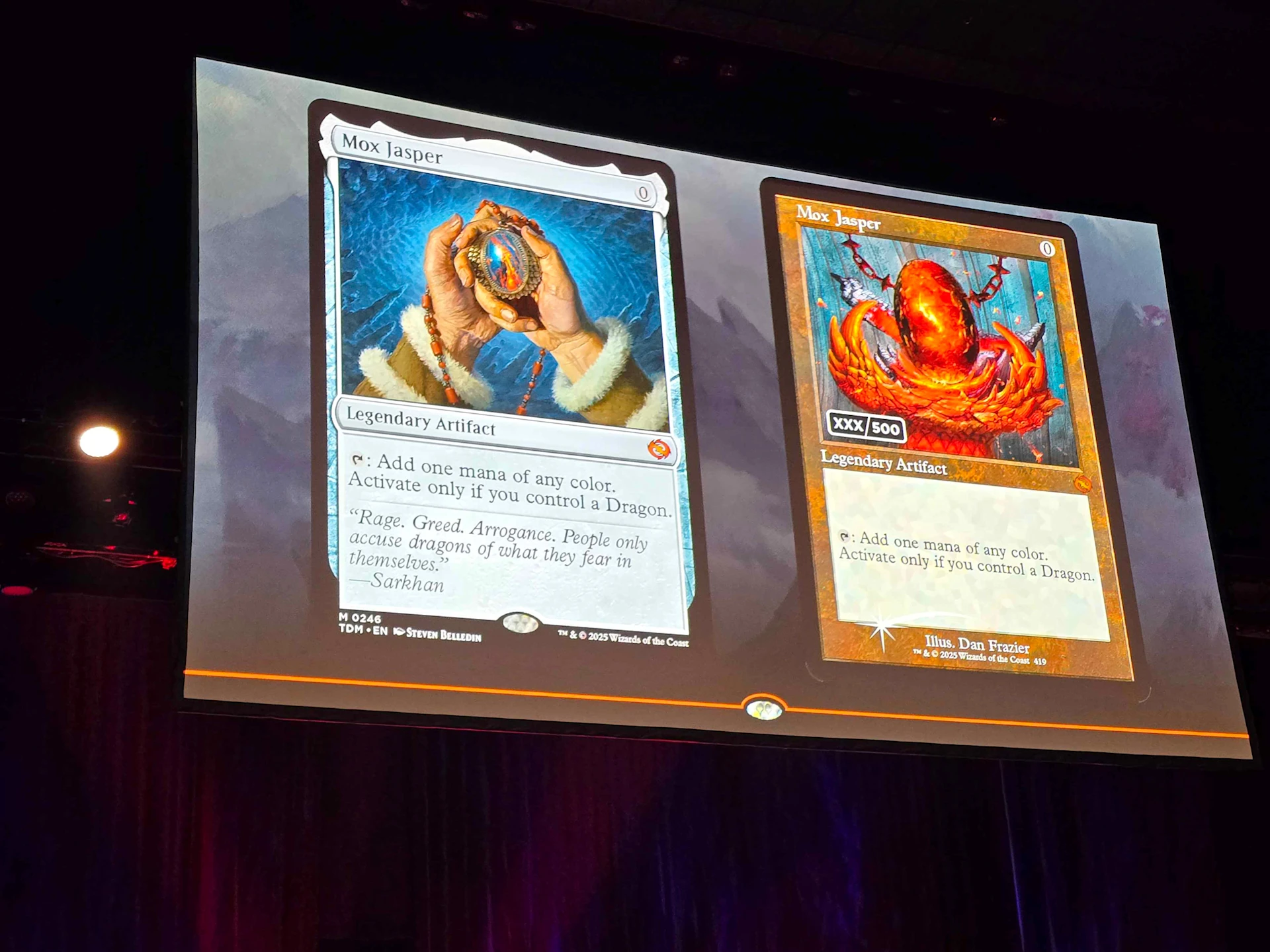
Right now our data says they're okay with mixing and matching it. We're doing it. If it really ends up that they're not, we'll change course. But the data right now says, the fun, the magic is mixing, matching lots of things.
Which set are you most excited for for the rest of the year?
Mark Rosewater & Blake: Spider-Man
Athena Froehlich: Tarkir Dragonstorm.
Mark Rosewater So we have a thing we call Sneeze which means: subject matter expert. So the idea is whenever we do something, we send up the whole company and say, Hey, who knows this property? And then and I will make sure that those people are very involved.
So like, for example, Spider-Man, I wasn't directly on the design team, but Corey and I have a talk and constantly like I go in the file and make notes. whatever the experts are, we make sure that those are there.
Athena Froehlich: It's also really fun finding out what your secret thing is from your coworkers who don't really talk about it. And then all of a sudden they're like, actually, I own a forum and a blog, and I've been doing this for ten years.

A completionist at heart, this Software Specialist is on a mission to catch 'em all. Connoisseur of comfy and easy to wear shorts.